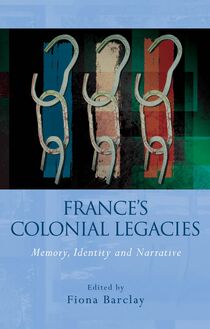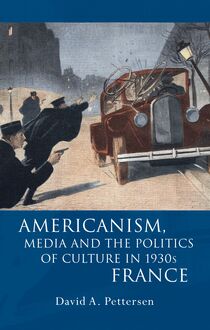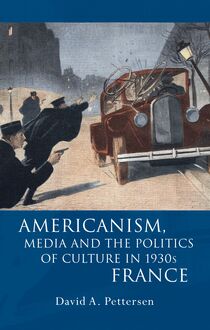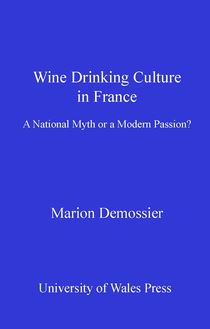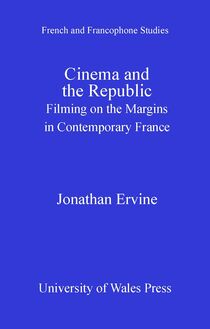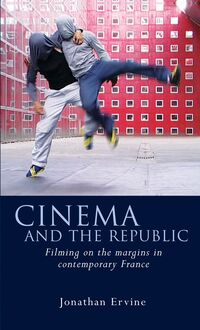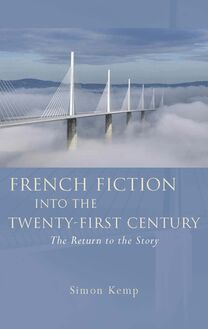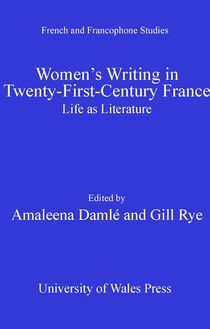-
 Univers
Univers
-
 Ebooks
Ebooks
-
 Livres audio
Livres audio
-
 Presse
Presse
-
 Podcasts
Podcasts
-
 BD
BD
-
 Documents
Documents
-
- Cours
- Révisions
- Ressources pédagogiques
- Sciences de l’éducation
- Manuels scolaires
- Langues
- Travaux de classe
- Annales de BEP
- Etudes supérieures
- Maternelle et primaire
- Fiches de lecture
- Orientation scolaire
- Méthodologie
- Corrigés de devoir
- Annales d’examens et concours
- Annales du bac
- Annales du brevet
- Rapports de stage
La lecture à portée de main
Vous pourrez modifier la taille du texte de cet ouvrage
Découvre YouScribe en t'inscrivant gratuitement
Je m'inscrisDécouvre YouScribe en t'inscrivant gratuitement
Je m'inscrisEn savoir plus
Vous pourrez modifier la taille du texte de cet ouvrage
En savoir plus

Description
Sujets
Informations
| Publié par | University of Wales Press |
| Date de parution | 15 avril 2013 |
| Nombre de lectures | 0 |
| EAN13 | 9781783160419 |
| Langue | English |
Informations légales : prix de location à la page 0,1074€. Cette information est donnée uniquement à titre indicatif conformément à la législation en vigueur.
Extrait
FRENCH AND FRANCOPHONE STUDIES
Women’s Writing in Twenty-First-Century France
Series Editors
Hanna Diamond (University of Bath) Claire Gorrara (Cardiff University)
Editorial Board
Ronan le Coadic (Université Rennes 2) Nicola Cooper (Swansea University) Colin Davis (Royal Holloway, University of London) Didier Francfort (Université Nancy 2) Sharif Gemie (University of Glamorgan) H. R. Kedward (Sussex University) Margaret Majumdar (Goldsmiths College, University of London) Nicholas Parsons (Cardiff University)
© The Contributors, 2013
All rights reserved. No part of this book may be reproduced in any material form (including photocopying or storing it in any medium by electronic means and whether or not transiently or incidentally to some other use of this publication) without the written permission of the copyright owner except in accordance with the provisions of the Copyright, Designs and Patents Act 1988. Applications for the copyright owner’s written permission to reproduce any part of this publication should be addressed to The University of Wales Press, 10 Columbus Walk, Brigantine Place, Cardiff CF10 4UP.
www.uwp.co.uk
British Library CIP A catalogue record for this book is available from the British Library.
ISBN 978-0-7083-2588-9 e-ISBN 978-1-78316-041-9
The rights of the Contributors to be identified as authors of this work have been asserted in accordance with sections 77, 78 and 79 of the Copyright, Designs and Patents Act 1988.
Printed by CPI Antony Rowe, Chippenham, Wiltshire
In memoriam Elizabeth Fallaize
Contents
Acknowledgements
List of illustrations
Notes on contributors
Part One: Women’s Writing in Twenty-First-Century France: Trends and Issues
Chapter 1: Women’s Writing in Twenty-First-Century France: Introduction Amaleena Damlé and Gill Rye
Chapter 2: What ‘Passes’?: French Women Writers and Translation into English Lynn Penrod
Chapter 3: What Women Read: Contemporary Women’s Writing and the Best-seller Diana Holmes
Part Two: Society, Culture, Family
Chapter 4: Vichy, Jews, Enfants Cachés : French Women Writers Look Back Lucille Cairns
Chapter 5: Wives and Daughters in Literary Works Representing the Harkis Susan Ireland
Chapter 6: (Not) Seeing Things: Marie NDiaye, (Negative) Hallucination and ‘Blank’ Métissage Andrew Asibong
Chapter 7: Rediscovering the Absent Father, a Question of Recognition: Despentes, Tardieu Lori Saint-Martin
Chapter 8: Babykillers: Véronique Olmi and Laurence Tardieu on Motherhood Natalie Edwards
Part Three: Body, Life, Text
Chapter 9: The Becoming of Anorexia and Text in Amélie Nothomb’s Robert des noms propres and Delphine de Vigan’s Jours sans faim Amaleena Damlé
Chapter 10: The Human-Animal in Ananda Devi’s Texts: Towards an Ethics of Hybridity? Ashwiny O. Kistnareddy
Chapter 11: Embodiment, Environment and the Reinvention of Self in Nina Bouraoui’s Life-Writing Helen Vassallo
Chapter 12: Irreverent Revelations: Women’s Confessional Practices of the Extreme Contemporary Barbara Havercroft
Chapter 13: Contamination Anxiety in Annie Ernaux’s Twenty-First-Century Texts Simon Kemp
Part Four: Experiments, Interfaces, Aesthetics
Chapter 14: Experience and Experiment in the Work of Marie Darrieussecq Helena Chadderton
Chapter 15: Interfaces: Verbal/Visual Experiment in New Women’s Writing in French Shirley Jordan
Chapter 16: ‘Autofiction + x =?’: Chloé Delaume’s Experimental Self-Representations Deborah B. Gaensbauer
Chapter 17: Beyond Antoinette Fouque ( Il y a deux sexes ) and Beyond Virginie Despentes ( King Kong théorie )? Anne Garréta’s Sphinxes Owen Heathcote
Chapter 18: Amélie the Aesthete: Art and Politics in the World of Amélie Nothomb Anna Kemp
Conclusion Amaleena Damlé and Gill Rye
Works Cited
Series Editors’ Preface
This series showcases the work of new and established scholars working within the fields of French and francophone studies. It publishes introductory texts aimed at a student readership, as well as research-orientated monographs at the cutting edge of their discipline area. The series aims to highlight shifting patterns of research in French and francophone studies, to re-evaluate traditional representations of French and francophone identities and to encourage the exchange of ideas and perspectives across a wide range of discipline areas. The emphasis throughout the series will be on the ways in which French and francophone communities across the world are evolving into the twenty-first century.
Hanna Diamond and Claire Gorrara
Acknowledgements
We are very grateful to Girton College, Cambridge and the Faculty of Modern and Medieval Languages at the University of Cambridge for their support in bringing this book to fruition. We should also like to thank the Cassal Trust Fund, administered by the School of Advanced Study, University of London, the French Embassy in London and the Institute of Germanic Romance Studies, University of London, for their earlier contributions to our project.
List of illustrations
Figure 14.1 ‘Learning to write’, Marie Darrieussecq, Le Pays (2005). By kind permission of P.O.L.
Figure 14.2 ‘La Transfrontalière’, Marie Darrieussecq, Le Pays (2005). By kind permission of P.O.L.
Figure 15.1 L’Usage de la photo, ‘a register of excess’ (2005), © Annie Ernaux and Marc Marie, reproduced by kind permission.
Figure 15.2 L’Épouvante l’émerveillement, ‘inflammatory marking’, Béatrix Beck (illustrations by Gaël Davrinche), © Les Éditions du Chemin de fer, 2010.
Figure 15.3 Version live, ‘daughter/mother identification’, Sigolène Prébois, © P.O.L., 2010.
Figure 15.4 Version live, ‘drawing as tending’, Sigolène Prébois, © P.O.L., 2010.
Notes on contributors
Andrew Asibong is Senior Lecturer in the Department of European Cultures and Languages at Birkbeck, University of London, where he is also co-director of the research centre Birkbeck Research in Aesthetics of Kinship and Community (BRAKC). His research focuses on the radical reconfiguration of subjectivity and inter-subjective modes of relationality in the contemporary arts, drawing especially on fantastical or pseudo-fantastical films and fictions, mainly psychoanalytic forms of psychotherapy, and the ethics and politics of class and stigma. He has published articles on the writers Jacques Stephen Alexis, Marie Chauvet, Marie Darrieussecq, Mohammed Dib, Hervé Guibert and Marie NDiaye, and on the filmmakers Pedro Almodóvar, Gregg Araki, Claire Denis, Georges Franju, François Ozon and Alain Resnais. He is the author of François Ozon (2008) and co-editor (with Shirley Jordan) of Marie NDiaye: l’étrangeté à l’œuvre (2009). He is currently preparing a monograph entitled Marie NDiaye: Blankness and Recognition .
Lucille Cairns is Professor of French at Durham University. She is the author of numerous articles and chapters, both on French women’s writing and filmmaking and on male and female homosexuality in French literature and film, as well as of five sole-authored monographs: Marie Cardinal: Motherhood and Creativity (1992), Privileged Pariahdom: Homosexuality in the Novels of Dominique Fernandez (1996), Lesbian Desire in Post-1968 French Literature (2002), Sapphism on Screen: Lesbian Desire in French and Francophone Cinema (2006) and Post-War Jewish Women’s Writing in French (2011). She is also sole editor of Gay and Lesbian Cultures in France (2002). She was President of the Association of University Professors and Heads of French from 2007–10, and is currently the national representative for French Studies on the Executive Committee of the University Council of Modern Languages. In 2009, she was made a Chevalier dans l’Ordre des Palmes Académiques by the French government. In 2011, she became a member of REF 2014 sub-panel 28 (Modern Languages and Linguistics). In 2011, the Agence Nationale de la Recherche appointed her Vice-President of the Laboratoires d’excellence scheme for the Humanities jury and, in 2012, she became President of the ANR’s new Humanities scheme of grant awards.
Helena Chadderton is Lecturer in French at the University of Hull. She is the author of Marie Darrieussecq’s Textual Worlds: Self, Society and Language (2012), as well as several articles on Darrieussecq. More broadly her research topics include contemporary fiction, women’s writing, narrative theory, stylistics, the relationship between text, self and society, and the development of politically committed literature in a postmodern world.
Amaleena Damlé is Research Fellow in French at Girton College, Cambridge. Her research interests lie in intersections between modern and contemporary thought and literature, with a particular emphasis on gender and sexuality. Her monograph – The Becoming of the Body: Contemporary Women’s Writing in French – is forthcoming in 2014. The book considers articulations of female corporeality and transformation in contemporary works by four female authors, in dialogue with Deleuzian philosophy and recent (post)feminist and queer thought. She is also working on a new book project that looks at notions of love, desire and ethics in modern and contemporary French culture, and is co-editing, with Gill Rye, two further volumes of articles on women’s writing in French. She has written articles on Nina Bouraoui, Marie Darrieussecq, Ananda Devi and Amélie Nothomb, and is the co-editor of The Beautiful and the Monstrous: Essays in French Literature, Thought and Culture (2010).
Natalie Edwards is Lecturer in French Studies and member of the Fay Gale Centre for Research on Gender at the University of Adelaide. She specialises in contemporary women’s writing and autobiography. Her book Shifting Subjects: Plural Subjectivity in Francophone Women’s Autobiography was published in 2011. She co-edited with Christopher Hogarth This Self Which Is Not One: Francophone Women’s Life Writing (2010) and Gender and Displacement: ‘Home’ in Contemporary Francophone Women’s
-
 Univers
Univers
-
 Ebooks
Ebooks
-
 Livres audio
Livres audio
-
 Presse
Presse
-
 Podcasts
Podcasts
-
 BD
BD
-
 Documents
Documents
-
Jeunesse
-
Littérature
-
Ressources professionnelles
-
Santé et bien-être
-
Savoirs
-
Education
-
Loisirs et hobbies
-
Art, musique et cinéma
-
Actualité et débat de société
-
Jeunesse
-
Littérature
-
Ressources professionnelles
-
Santé et bien-être
-
Savoirs
-
Education
-
Loisirs et hobbies
-
Art, musique et cinéma
-
Actualité et débat de société
-
Actualités
-
Lifestyle
-
Presse jeunesse
-
Presse professionnelle
-
Pratique
-
Presse sportive
-
Presse internationale
-
Culture & Médias
-
Action et Aventures
-
Science-fiction et Fantasy
-
Société
-
Jeunesse
-
Littérature
-
Ressources professionnelles
-
Santé et bien-être
-
Savoirs
-
Education
-
Loisirs et hobbies
-
Art, musique et cinéma
-
Actualité et débat de société
- Cours
- Révisions
- Ressources pédagogiques
- Sciences de l’éducation
- Manuels scolaires
- Langues
- Travaux de classe
- Annales de BEP
- Etudes supérieures
- Maternelle et primaire
- Fiches de lecture
- Orientation scolaire
- Méthodologie
- Corrigés de devoir
- Annales d’examens et concours
- Annales du bac
- Annales du brevet
- Rapports de stage
